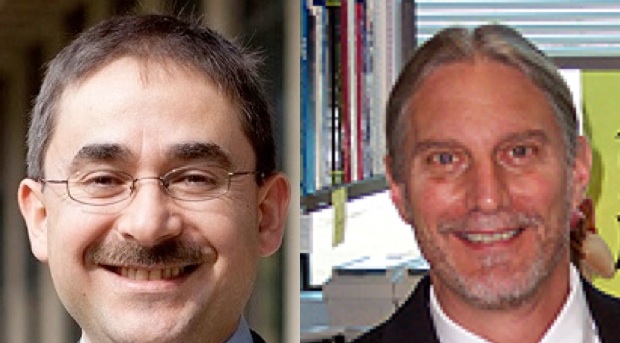JRST Editors, July 2014

Fouad Abd-El-Khalick and Dana Zeidler
A Few Words from the Incoming Editors of JRST
Fouad Abd-El-Khalick (University of Illinois – Urbana Champaign)
Dana L. Zeidler (University of South Florida – Tampa Bay)
We feel both excited and privileged to taking the helm of JRST beginning January 2015! We would like to share some of our thoughts with you at this point in time.
There are central themes at the forefront of science education that have helped to shaped our vision for JRST that include (but are not limited to): science education as a global endeavor; building broad scientific literacy and engagement, as well as bolstering the health of national and global scientific pipelines; and issues of social justice, equity, and diversity in science education including access to science and the scientific enterprise. Three closely associated and equally central domains to this vision are: (a) Increasing JRST’s impact on policy, (b) publishing scholarly works focused on conceptual and theoretical analyses, along with empirical works, and (c) building into JRST’s mission a significant educational component focused on developing capacity among graduate students and JRST reviewers toward preparing the next generation of researchers, as well as JRST reviewers and associate editors.
It is also important for us to note a caveat guiding our editorial philosophy: editors do not determine research trends in the field, nor should they. In this respect, editors do not serve their journals or fields by advancing their priorities, commitments, methodological and research paradigms, or values and preferences over those of other researchers. Rather, editors respond to their fields and, based on input from other scholars, make informed choices about manuscripts (especially the “gems in the rough”) that are most likely to have significant impacts in terms of advancing knowledge and understanding, transforming practice and/or policy, achieving breakthroughs in terms of theory and research methodology, or inspiring fruitful new discussions and directions for research and practice in science education.
Consistent with our vision of a global science education community and increasing the diversity of perspectives within our field— particularly of researchers from diverse cultures, national origins, and epistemological and research traditions—we brought together an Editorial Leadership Team with substantial international representation, while also reflecting the diversity of perspectives, methodologies, issues, and cultures that form the fabric of our global community. Our international Associate Editors come from virtually every continent and region around the globe that have especially been engaged with NARST and JRST including North America, Eastern Asia, Europe, Latin America, the Middle East (or Western Asia), and Australia. Our international Associate Editors further consist of a cadre of established and emerging scholars who are committed to a collaborative effort to publish highly rigorous, responsive, and diverse scholarly research.
We look forward to introducing our Associate Editors to you in the next issue of the e-NARST newsletter and providing more details about our goals and policies. From A to Z — we have NARST covered!
Sincerely,
Fouad Abd-El-Khalick (University of Illinois – Urbana Champaign)
Dana L. Zeidler (University of South Florida – Tampa Bay)
